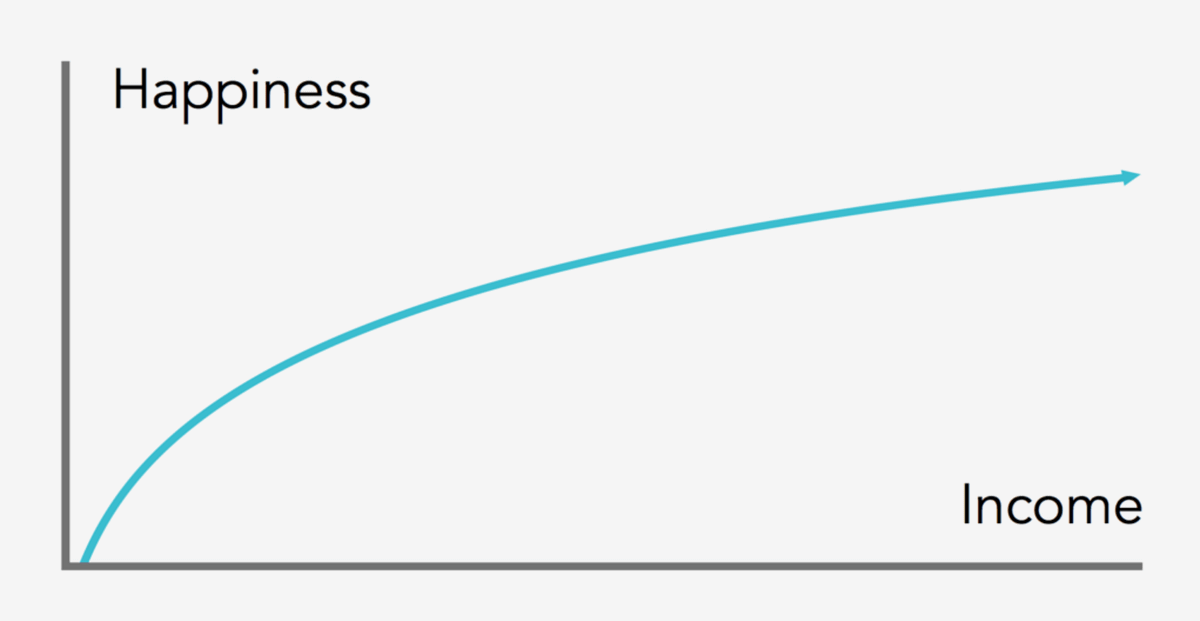מושגי ליבה
Making more money doesn't necessarily lead to more happiness, as highlighted by personal experiences and expert opinions.
תקציר
The author reflects on their lifelong pursuit of wealth, starting from a young age. Despite achieving financial success beyond their initial dreams, they realize that money alone does not guarantee happiness. Expert insights suggest that once a certain income threshold is reached, additional wealth has diminishing returns on overall well-being. The narrative emphasizes the importance of balance and fulfillment beyond monetary gains.
התאם אישית סיכום
כתוב מחדש עם AI
צור ציטוטים
תרגם מקור
לשפה אחרת
צור מפת חשיבה
מתוכן המקור
עבור למקור
medium.com
Making Money Isn’t Making Me Happy Anymore
סטטיסטיקה
"Honestly, past the $5,000 per month mark, it doesn’t really matter anymore how much you’re making."
"Once you’re past the $75,000 per year mark, money doesn’t influence your happiness anymore."
"It doesn’t matter to my own wellbeing if I make $100,000 or $100 million a year; I will get rid of some problems but I will add some others in exchange."
ציטוטים
"It doesn’t matter to my own wellbeing if I make $100,000 or $100 million a year; I will get rid of some problems but I will add some others in exchange." - Stefan Sagmeister
תובנות מפתח מזוקקות מ:
by Joseph Maver... ב- medium.com 03-09-2024
https://medium.com/swlh/making-money-isnt-making-me-happy-anymore-e854e51ad3da
שאלות מעמיקות
What non-monetary factors contribute significantly to overall happiness?
Non-monetary factors that contribute significantly to overall happiness include strong relationships with family and friends, a sense of purpose or meaning in life, good physical and mental health, personal growth and development, a feeling of belonging to a community or social group, engaging in activities that bring joy and fulfillment, practicing gratitude and mindfulness, experiencing moments of flow where one is fully immersed in an activity, contributing to the well-being of others through acts of kindness or volunteering, having a work-life balance that allows for relaxation and leisure time, connecting with nature or spirituality, and feeling a sense of autonomy and control over one's life choices.
Is there a point where pursuing wealth becomes detrimental to one's well-being?
Yes, there is a point where pursuing wealth can become detrimental to one's well-being. When the pursuit of wealth consumes all aspects of life at the expense of relationships, health, personal values, ethics, mental well-being or leads to excessive stress levels due to constant pressure for financial success. Additionally when individuals prioritize material possessions over experiences or meaningful connections with others leading to feelings of emptiness despite accumulating wealth. Moreover when the relentless pursuit for more money results in neglecting self-care practices such as restful sleep patterns exercise healthy eating habits causing long-term damage on physical health.
How can individuals find fulfillment beyond financial success?
Individuals can find fulfillment beyond financial success by focusing on personal growth emotional intelligence cultivating strong relationships maintaining good physical mental health finding purpose outside work engaging in hobbies passions giving back through acts service volunteering developing spiritual practices mindfulness meditation seeking new experiences learning opportunities embracing creativity exploring nature prioritizing self-care setting boundaries balancing work-life commitments practicing gratitude reflection identifying core values aligning actions goals living authentically true oneself.
0
